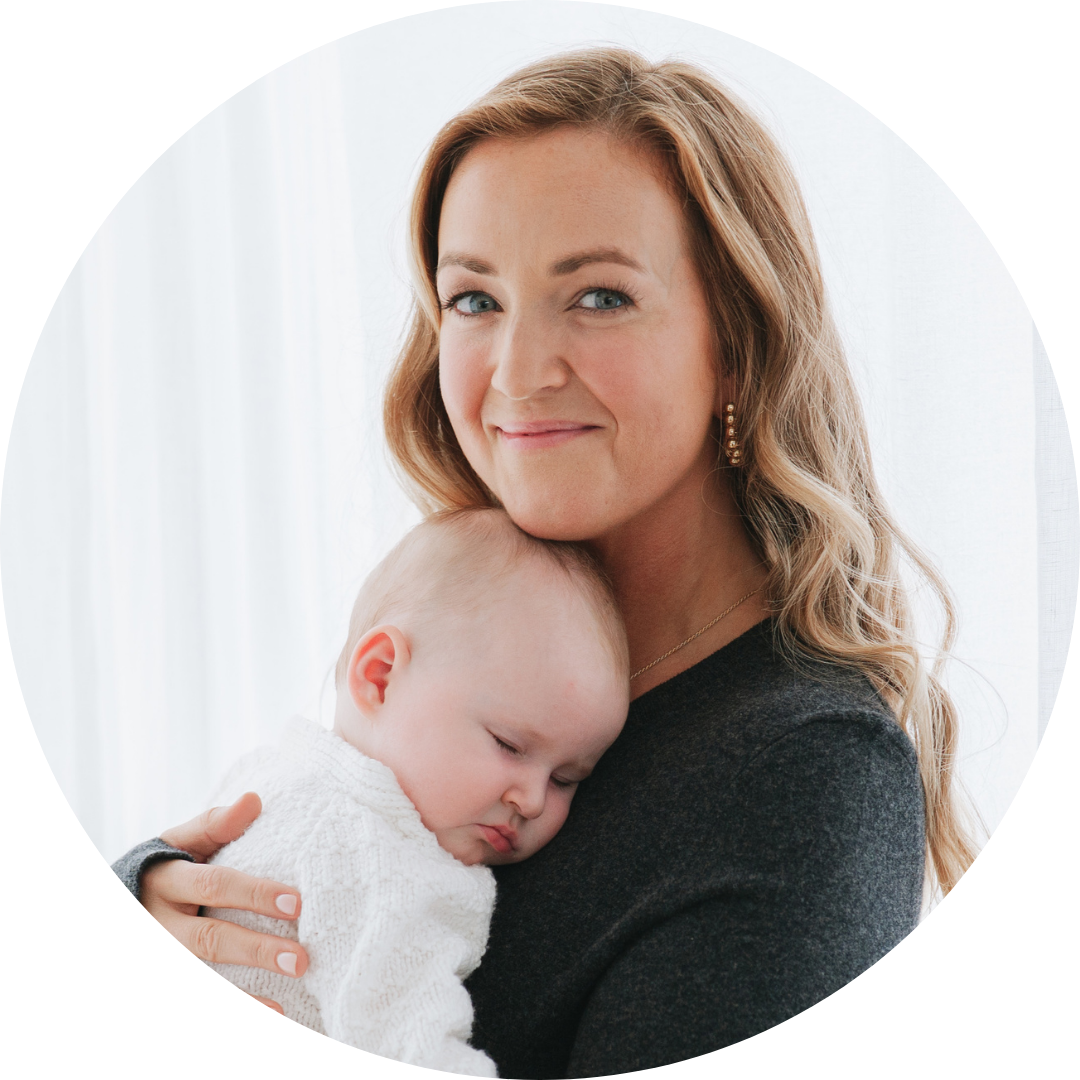...And you should too!
Having time for yourself and time for you and your partner are both really important and should not simply disappear after you have a baby. Once you have a solid daytime routine in place that works for your little one, you can make firm plans and know that you will actually be able to do them!
Whether you choose to have a consultation with us or buy a sleep programme, you will be given a daytime routine with set timings to follow that is suitable for your baby's age/age range.
The benefits of routine
1. Setting your day's foundation
Starting and finishing the day at the same time each day and working to a 12-hour day is one of the best things you can do to start getting your baby's sleep regulated. It creates a consistent 24-hour routine that establishes their circadian rhythm, helping their bodies naturally understand when it's time to be awake and when it's time to sleep.
Even if your night has been disrupted with multiple wake-ups, starting the day at the same time each morning sets the tone for the day ahead and helps your baby's body clock to function optimally.
2. Clear nap schedule
Having set timings for your naps really helps to stop parents from getting in a muddle. You can plan your day, including baby classes, knowing the times when your baby will naturally be tiring and ready for a nap. This allows you to build your life around your baby's needs rather than constantly trying to guess when they might need to sleep next.
A predictable nap schedule also helps your baby's body build the right amount of "sleep pressure" between naps, making it easier for them to fall asleep when it's time. When your baby follows a consistent routine, both their body and brain begin to anticipate what's coming next, making transitions smoother.
Pro tip: Check out our blog titled ‘Here’s why naps are more important than baby classes’ which goes into more detail on the importance that day time sleep should have.
3. Moving beyond sleepy cues
Sometimes sleepy cues aren't obvious! So many parents we work with are struggling with phantom cues and either putting their babies down too early or too late. A routine with set timings is going to remove all of that ambiguity.
By the time many parents spot traditional sleepy cues (eye rubbing, yawning), their baby is often already overtired, which makes settling them significantly more difficult. When you follow a routine, you're putting your baby down based on appropriate wake windows for their age, not waiting until they're showing signs of being exhausted.
Additionally, as babies grow, their sleepy cues can change or become less obvious. A routine ensures you're not constantly trying to decode new signals.
4. Predictable breaks for you
Remember those breaks you used to have in your full-time job before baby? When you had a full-on job, you were used to breaks, and you very much still need those now with a 12-hour workday of parenting.
Having predictable breaks during the day allows you to:
• Shower or get ready without rushing
• Eat a meal using both hands
• Complete household tasks
• Work (if you're juggling remote work with childcare)
• Simply rest and recharge
These breaks aren't a luxury – they're essential for your mental health and wellbeing as a parent.
How routines support your baby's development
Building security through predictability
Babies thrive on knowing what's coming next. By establishing a routine, you're creating a sense of security for your little one. They begin to understand the rhythm of their day – when they'll eat, play, and sleep – which builds confidence and reduces anxiety.
This predictability is calming for babies. They may not understand the concept of time, but their bodies and brains begin to anticipate what happens next in their day, making transitions smoother.
Creating optimal conditions for sleep
When you follow a consistent routine, you're helping your baby's body build the right amount of "sleep pressure" between naps, making it easier for them to fall asleep when it's time. A routine ensures that they're neither undertired (which makes it hard to fall asleep) nor overtired (which can lead to short naps and frequent night wakings).
Supporting feeding patterns
A consistent routine helps establish regular feeding patterns too. By offering feeds at roughly the same times each day, you're encouraging your baby to take full feeds rather than snacking throughout the day, which can lead to more frequent night wakings for hunger.
For breastfeeding mothers, predictable feeding times can help establish a good milk supply. For formula-fed babies, it helps you track and ensure they're getting adequate nutrition throughout the day.
Getting started with a routine
Age-appropriate routines
The right routine for your baby will depend on their age. Newborns (0-6 weeks) benefit from very loose routines based more on natural rhythms, while older babies can handle more structure:
• 0-4 weeks: Focus on establishing feeding and following natural sleep patterns
• 4-12 weeks: Begin introducing slightly more predictable nap times
• 3-4 months: Work towards a consistent 3-nap schedule
• 4-6 months: Establish a reliable 3-nap routine with consistent timings
• 6-9 months: Transition to a 2-nap schedule as your baby's wake windows lengthen
Need a blueprint to follow?
Our Sleep Guides give you a step-by-step plan to follow to help your little one to become a great sleeper.
Gradual implementation
If you're just starting with a routine, don't expect perfection right away. Begin by focusing on a consistent wake-up time and bedtime, then gradually work on standardizing nap times. Small adjustments of 15-30 minutes at a time help your baby adapt without becoming overtired.
Remember that consistency is key – even a few days of following the same pattern will help your baby begin to adjust their internal rhythms.
Flexibility within structure
While I'm a strong advocate for routines, I also recognize the importance of flexibility. Life happens – appointments, family visits, or special occasions might disrupt your routine occasionally. The beauty of having an established routine is that your baby can handle these occasional disruptions much better because they have a strong foundation.
Think of your routine as a framework rather than a rigid schedule. The timings might shift by 30 minutes here or there, but the sequence of activities remains consistent, providing your baby with the predictability they need.
Common concerns about routines
"Will a routine make my baby inflexible?"
Actually, the opposite is true. Babies with consistent routines tend to adapt better to change because they feel secure in their basic needs being met. When occasional disruptions occur, they can handle them more easily because they have a solid foundation.
"Is it too early to start a routine?"
While newborns under 6 weeks primarily need to feed on demand and sleep when tired, you can begin introducing gentle patterns from about 4 weeks onwards. These aren't strict schedules, just consistent sequences (like feed-play-sleep) that help your baby start to understand the rhythm of their day.
"What if my baby doesn't fit the routine perfectly?"
No baby follows a routine perfectly every day! The goal isn't perfection but providing a framework that works most of the time. Your baby might take longer to settle one day or need an extra catnap another day – that's completely normal. The routine is there to guide you, not to create stress.
Final thoughts
Having predictability in your day is going to give your baby and you a sense of calmness as they will start to know exactly what's happening next at each point in their day and be going down for their naps contentedly.
A good routine doesn't just benefit your baby – it gives you back some control and predictability in what can otherwise feel like a chaotic time. It allows you to plan your day, take care of your own needs, and enjoy your baby rather than constantly trying to figure out what they need.
We can't wait to help you put a daytime routine in place that works for your family!









